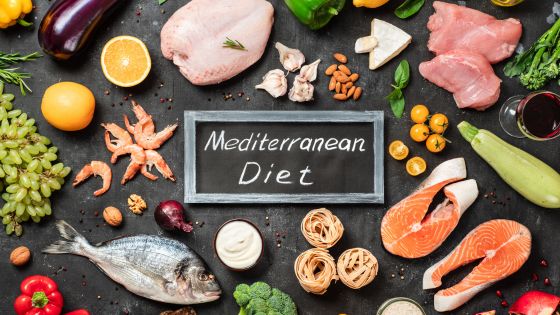The delicious Mediterranean diet has long been championed as one of the healthiest and most balanced ways of eating. Originating from the countries bordering the Mediterranean Sea, this dietary pattern has garnered attention for its numerous health benefits and potential to promote longevity. In this article, we delve into the secrets of the Mediterranean diet and explore why it has become a gold standard for healthy eating.

Unveiling the Mediterranean Diet
The Mediterranean diet is not merely a set of strict rules but rather a way of life that revolves around fresh, whole foods and mindful eating. At its core, this dietary pattern emphasizes the intake of fruits, vegetables, legumes, whole grains, nuts, and seeds. These foods form the foundation of the Mediterranean diet, providing a wealth of essential nutrients, fiber, and antioxidants.
Embracing Healthy Oils and Fatty Fish
One of the distinguishing features of the Mediterranean diet is the consumption of healthy fats. Instead of avoiding fats altogether, this eating pattern encourages the inclusion of monounsaturated fats, predominantly from olive oil. Olive oil not only adds a delightful flavor to meals but also contains heart-healthy properties, such as anti-inflammatory effects and the ability to reduce the risk of chronic diseases. Additionally, the Mediterranean diet promotes the consumption of fatty fish (salmon, mackerel, and sardines). These are rich in omega-3 fatty acids, which are well-known for their cardiovascular benefits.
Prioritizing Plant-based Sources
While the Mediterranean diet does include moderate amounts of lean meats and poultry, it places greater emphasis on plant-based sources of protein. Legumes, such as chickpeas, lentils, and beans, play a prominent role in this dietary pattern, providing a nutritious and sustainable alternative to animal protein. Legumes are not only rich in protein but also contain dietary fiber and a variety of vitamins and minerals. You can see a wonderful example of a Mediterranean menu at terrarossa-restaurant.co.uk. By incorporating legumes into meals, the Mediterranean diet offers a balance of essential nutrients while reducing the reliance on animal-based protein.
Social Connection and Enjoyment
Beyond its focus on food, the Mediterranean diet is intertwined with a holistic approach to living. In Mediterranean cultures, meals are a communal affair, bringing family and friends together to share food, laughter, and conversation. This emphasis on social connection and enjoyment promotes a positive relationship with food, encouraging individuals to savor each bite, eat mindfully, and appreciate the entire dining experience. This aspect of the Mediterranean lifestyle contributes to a healthier relationship with food and overall well-being.
The Health Benefits: Science-Backed Evidence
The Mediterranean diet has been extensively studied and linked to numerous health benefits. Research suggests that following this dietary pattern can reduce the risk of heart disease, lower blood pressure and cholesterol levels, improve insulin sensitivity, and support weight management. Furthermore, the Mediterranean diet has been associated with a reduced incidence of certain cancers, as well as a decreased risk of cognitive decline and neurodegenerative diseases like Alzheimer’s.
In conclusion, the secrets of the Mediterranean diet lie in its emphasis on whole, unprocessed foods, healthy fats, plant-based proteins, and a holistic approach to eating. By adopting this dietary pattern, individuals can enjoy a wide range of flavors while reaping the benefits of improved health and longevity. The Mediterranean diet is not a quick-fix solution but rather a sustainable and enjoyable way of nourishing the body and embracing a wholesome lifestyle. So, take a journey to the shores of the Mediterranean and discover the secrets that can lead you on a path to health, vitality, and well-being.
